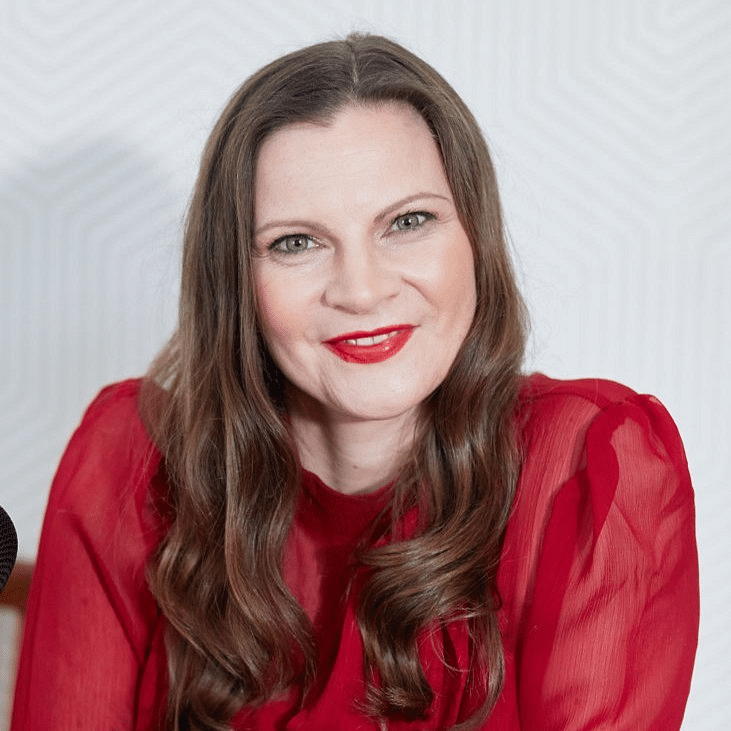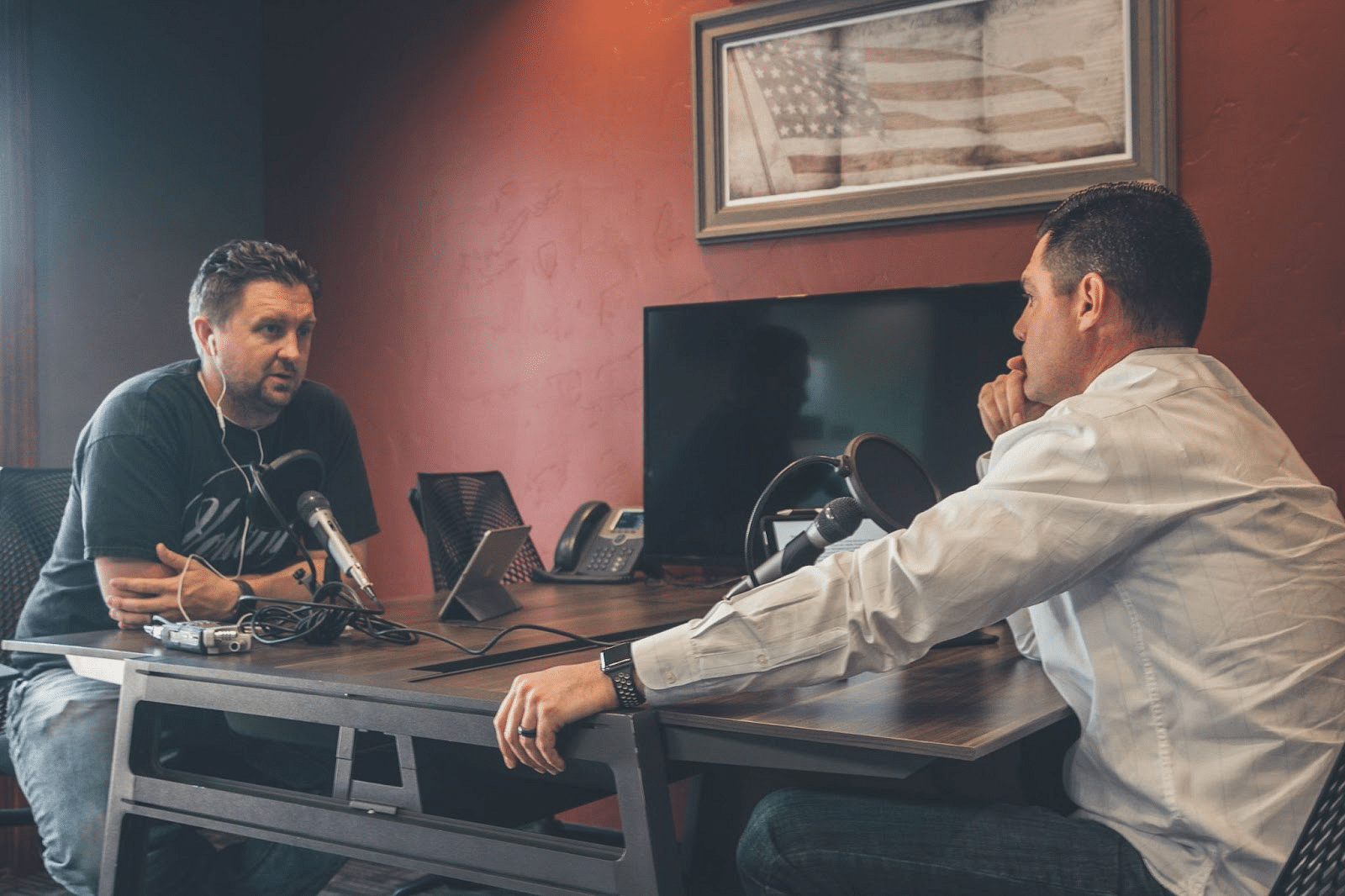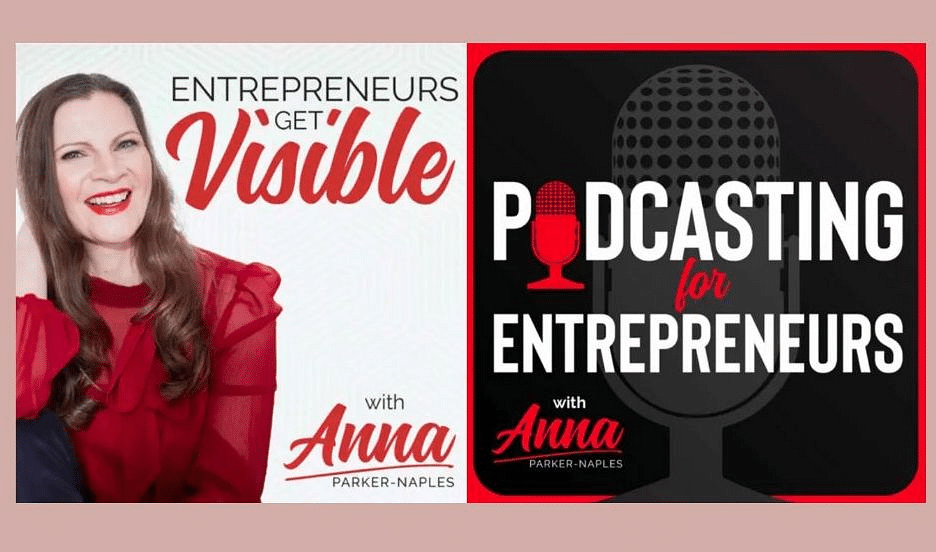
Want to leverage podcasting as a medium to get noticed? Create a podcast sales funnel.
By Jim James, Founder EASTWEST PR and Host of The UnNoticed Entrepreneur.
Anna Parker-Naples was the guest on the new episode of The UnNoticed Entrepreneur and she talked about building a “podcast sales funnel,” which is a trademark of her company, The Podcast Agency. She’s a best-selling author and she helps companies, entrepreneurs, and larger businesses build podcasts and take advantage of the fast-growing medium.
Image from LinkedIn
What is a Podcast Sales Funnel?
Anna has been going to all sorts of conferences and events about podcasting and her company has been helping early-stage podcasting entrepreneurs catapult their brands into the charts. She has also been looking at and listening to all these statistics about how influential and trusted the medium is.
She realised that people now don’t want to turn up to masterclasses and discovery calls. The retention rate in these mediums has really slowed down. This scenario is quite problematic: Why are businesses still sending people somewhere else when they already know that people love listening to podcasts and it’s the medium that gets their audience excited about working with them?
Upon this realisation, she and her team came up with the concept of a 10-part complete series podcast. The idea behind this is to promote one specific offer or service that clients have in their businesses. Anybody listening to that is fully aware that it’s how they can find out more about working with you.
It can be considered bringing a sales page to life.
Through this podcast series, you’re imparting the bits of information that you repeat on a sales call over and over again and you’re answering questions that always come up in emails. You’re putting a very personal stamp on it while answering all of those objections and demonstrating the benefits of your product or service. You’re diving into what it’s like to work with you. You can also potential showcase some of your best clients through audio testimonials and interviews.
Based on the research that they’ve done with their own and their clients’ businesses, they found that this podcast series has helped increase sales by 400% and reduce either the need for a sales call or the time spent doing so. The 10-part series, composed of short episodes, allow people to come in and get their questions answered. And they can listen to it in their own time — when they’re in the shower or when they are walking their dog.
Screengrab from The Podcast Agency
As a follow-up to the podcast series, listeners then enter an email funnel. Anna and her company create this email funnel off the back of the information that clients shared on their podcasts. And together, these two things can help their clients build their list, drive sales activity, remove or minimise the need for sales calls or webinars — and develop a relationship with a customer or a potential one, which, to them, is a kind of relationship that feels intimate.
An Influential and Trusted Medium
Podcast content is imbued with lots of sales psychology. But, crucially, one of the reasons that podcasts are popular is that they let people feel as though they get to know each other; listeners are able to develop a sense of trust with the host.
Earlier this year, there was a study done about the trustworthiness of podcasts compared with other major media. Across the board, it was found that podcast hosts are more trusted than radio hosts, TV hosts, and anyone posting on social media or online news. Podcasters even overtook traditional news outlets such as the BBC and Daily Mail.
This is true across all age categories, especially among those who belong to the 35-to-54-year-old age bracket. So if you are trying to market or convert someone in that space, know that their preference to trust someone is to go to a podcast.
Image from Unsplash
Podcasts have become this powerful and influential. Personally, Anna believes that when you listen to somebody who’s talking about their stuff rather than actively selling themselves — and in a way that you’re hearing their voice with no distractions — your senses will be heightened.
Through that somebody’s voice, you can instinctively know when they’re excited about something, when they really mean something, or when they’re a bit vulnerable about saying something. This then develops that know, like, and trust factor, which would prompt you as the listener to want how to get in touch with them.
When podcasts are done properly and strategically, they can be more influential than anything — including TikTok videos, which are currently the highest-converting video content out there.
What’s Included in the 10-Part Podcast?
In creating a 10-part podcast, you need to look into the elements that are typically found in webinars and sales pitches. But, primarily, you should identify what your product is. Most businesses know what they do. However, they struggle with putting that out there in a way that their audience will understand.
You have to look into that and ask: What actually is the offer that you’re talking about? How does it work? Who is it for? Are you, as a business or as an individual, at the right stage to offer that? What are the best-case scenarios of your offering? These things could already cover a couple of episodes.
After that, you can handle objections. What are the risks of working with whoever is set to get your offer? The more upfront you can be about it and the more you can set your customers’ expectations, the more that they will trust you.
For instance, you can say that your clients will get results with your product or service but that won’t necessarily just come from you — they also have to do some work. You shouldn’t simply say something about your offer. You have to tell them that whatever you’re providing as a business is actually a partnership between you and them.
On the other episodes, you can bring in interviews with people who’ve worked with you — those who know and like your work. You want these people to also be honest about the working experience. Where were they when they first came in? What are the highs and lows of their working relationship with you? Where has their business or personal development moved on to?
There’s something powerful when the listener knows that you — the host and the business owner — are sitting with a client. Because in that instance, the client can say just about anything. This kind of setup helps build trust.
Image from Unsplash
One of the most important episodes you can put in a podcast sales funnel is a breakdown of the step-by-step process of the customer journey — from what will it be like at the moment a customer purchases from you and agrees to be your client to how they will get treated afterwards. At this stage, you can further set more expectations and boundaries: This is what you provide at this frequency.
Doing things this way is better than having your audience sit and read a small print of a sales page.
It’s Easier Than You Think
Producing the podcast series is quite a huge project. The Podcast Agency helps clients do this, first, by looking at it from a consultancy’s perspective. What are the outcomes that they are looking for? Being a business with audio knowledge, they support podcasters to get started, knowing that these people know nothing about this space.
Though the 10-episode podcast sounds huge, you can think of it as creating micro-sized content that you need to have when you’re selling something. The entire series can be an hour- or an hour-and-a-half-long if your audience would binge-listen to all of them.
Anna and her team have already broken down the process of creating it; they’re offering a very rigid structure of what they want you to cover. When you follow that process and you know that you’d only be speaking for about 10 minutes per episode — once you start speaking on an episode, you’ll find it easier to do. The key element here is that you have to know your audience and ideal customers.
Why Get Noticed in the Podcasting Space
When the idea of the podcast sales funnel came to Anna and her team, their company was focused on incorporating keywords into their content.
However, when Google Podcasts was introduced to the scene, they launched a new technology that can read everything said on any podcast (as long as it’s also on Google Podcasts) even without show notes or keyword optimisation. This can help increase your search engine optimisation (SEO) performance as a personal brand and as a business if you’re clever about the keywords that you say on your podcast.
Besides the SEO part, podcast directories such as Apple and Spotify are also now being used more and more as search engines, though they have a slightly different way of working as a search engine than Google.
Image from Unsplash
In the UK, 66% of people are regular podcast listeners. As mentioned, people have an audio preference across every group. And when you couple that into the fact that people are using podcasts as a search mechanism, then this space becomes a place where you’d absolutely want to get noticed.
On Private Podcasts
Today, podcasts aren’t just used externally. There are now private podcast networks intended for internal audiences.
There was a recent report done on internal communications and it showed how a lot of big businesses with a global presence are finding it harder to get their own people to watch their masterclasses or webinars and turn up during online meetings.
When the researchers looked into the willingness of individuals within those industries to listen to a private feed podcast, 84% said that they are most likely to listen to an internal feed podcast about their business or environment. Particularly, in the fields of information technology (IT), telecommunications, human resources (HR), construction, and finance, 33% stated that they would definitely listen to such content and they wish that their companies would provide that.
Depending on how you set it up, private podcasts can be easily accessed via Apple or Spotify. Though they’re on these platforms, the content is going through a special link that only certain people can find.
In the next three years, it is expected that every business that has a website will have a podcast. But, at that point, it will be harder to stand out from the crowd. Businesses having a podcast can be likened to how about a decade ago, every business had to have a blog even though they don’t really know how to write one.
Getting Her Brand Noticed
Anna has three podcasts. One is a passion project titled “Women in World War II.” But the main one is the podcast, “Entrepreneurs Get Visible.” The other is titled in a more SEO-specific way and it’s called “Podcasting for Entrepreneurs.” These two podcasts, though both targeting entrepreneurs, have different strategies behind them.
Images from Apple Podcasts
When it comes to podcasting, your strategy should be about actively looking for public relations (PR) exposure from time to time. In her case, Anna gets on a lot of other business podcasts to get her message out to as many people as she can. She is also on social media and she creates blogs from her podcast content for SEO purposes. After she goes live, her content gets keyword-optimised and turned into a useful article later. This is similar to what I also do for The UnNoticed Entrepreneur (which I also compiled into a book).
To get out there, Anna makes sure that she’s seen and heard in the industries that she needs to be in. She actively ensures that she gets to speak at various business events because on these occasions, you simply never know who’s in the room. She’s also part of several business communities and business masterminds.
Anna believes that business is personal — and the more people you can connect with, the more people who understand who you are as a business and as a person, the more you’re likely to get referrals.
In business, you need a little bit of everything. You need to have your own voice out there. You need video content these days, whether it’s something you are comfortable with or not. You need social media and blogs. And you need podcasts, even if it’s something you haven’t thought about until now.
To learn more about her, listen to one of her podcasts and grab a copy of her free e-book.
This article is based on a transcript from my podcast The UnNoticed Entrepreneur, you can listen here.
Image by Chase Chappell on Unsplash







